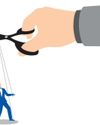
How do you tell if an economic policy being rolled out will work effectively or not? Economic policies cannot be tested in laboratories the way medicines or other sciences can be. Economists cannot conduct rigidly controlled clinical trials. Nor can they conjure up floods or famines in order to examine policy outcomes and effectiveness. Therefore, one of the things economists, especially labour economists, do to overcome the constraint is that they rely on what are called ‘natural experiments’. For this, economists analyse data that is naturally observable to infer the real-world outcomes of economic policies by establishing cause and effect.
This year’s Nobel for economics recognises the contribution of such analyses in making the subject more evidence-based. The award has been won by three economists, David Card, Joshua Angrist and Guido Imbens. Their work since the 1990s was a turning point and has completely reshaped the field of economics. The methods pioneered by these economists are now routinely used in many areas of economic research.
Card, who works at the University of California, Berkeley, conducted groundbreaking experiments, often in partnership with the late economist Alan Krueger, in the early 1990s in New Jersey in the fast-food sector that went on to show that an increase in the minimum wage did not always lead to job losses. These were counter-intuitive findings and this research ultimately went on to become empirical evidence used as a basis for the Biden administration’s legislation for a $15 minimum wage in the United States.
Esta historia es de la edición November 2021 de Wealth Insight.
Comience su prueba gratuita de Magzter GOLD de 7 días para acceder a miles de historias premium seleccionadas y a más de 9,000 revistas y periódicos.
Ya eres suscriptor ? Conectar
Esta historia es de la edición November 2021 de Wealth Insight.
Comience su prueba gratuita de Magzter GOLD de 7 días para acceder a miles de historias premium seleccionadas y a más de 9,000 revistas y periódicos.
Ya eres suscriptor? Conectar

Bad ideas, F&O trading and the market
Find out the mindset required to find success in F&O trading

Licence Raj Redux?
The import policy changes might take us back to the days of License Raj

How to do magic
Getting great equity returns sustainably only looks like magic, it actually isn't

Data protection and cyber security
The increasing need for cyber security is opening up investment opportunities

"Buying is dependent on pricing but not on timing"
Insights of a fund manager at PPFAS Mutual Fund

Pro vs Amateur
Can amateur stock investors be better than pros? Yes! Here's how

The dimming of Brightcom
Shedding light on irregularities at the Brightcom Group

First tryst with profitability
Find out if food aggregators have found a cure to their loss-making curse

Have We Crossed The Peak Of Inflation?
Find out if the present macro scenario calls for tweaking your portfolio strategy

Tomatonomics
The humour, the stories and what could have been done about tomato inflation